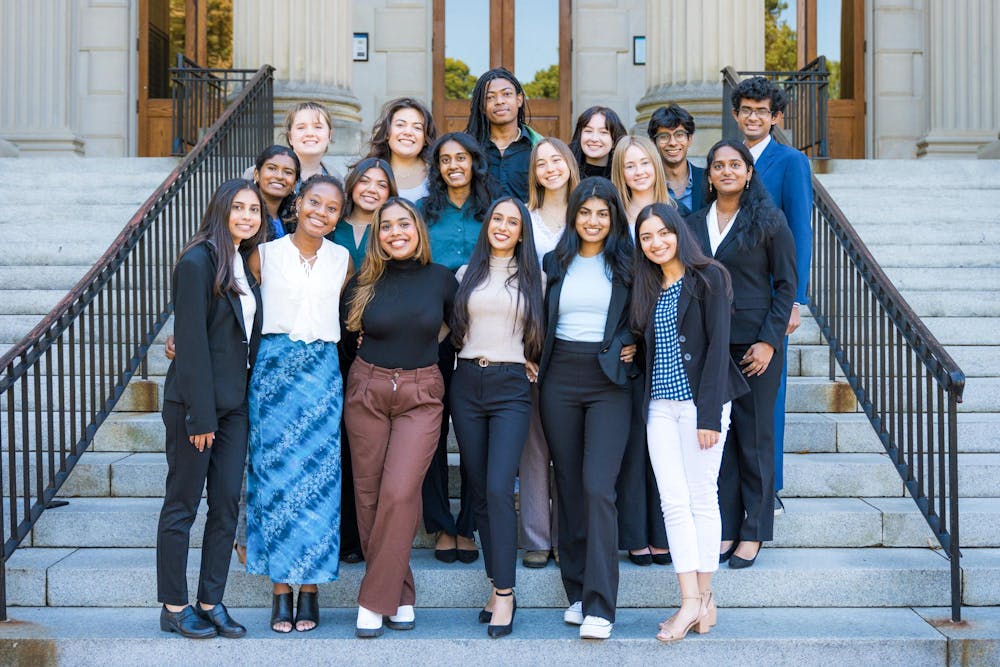The UNC chapter of the American Mock World Health Organization is approaching its 10th anniversary in January.
Devanshi Raval, the vice president of the organization, said that marks 10 years of helping students explore public health careers and raising global public health awareness.
“We want to make sure it's not just the Gillings [School of Global Public Health] people we're talking to — we want to get people from all around campus,” she said.
Raval said joining AMWHO helped her personally. In high school, she said she had no idea what public health was, and that joining this club broadened her knowledge, leading her to pursue a career in public health dentistry.
“I realized there are so many dedicated and really well-educated people on these topics and on this field that honestly inspired me to learn more about public health and learn more about things that we don't learn in the classroom,” she said.
The organization immerses students in the health policy field, giving every member the chance to simulate leadership positions and gain skills in writing, discussion and collaboration, Zoe Shipley, the president of the organization, said.
These skills are put into practice at the club’s annual conference, where members of different chapters act as delegates for countries, media outlets and non-governmental organizations, outreach director Shubhangi Patel said. The conference experience is similar to Model United Nations, Patel said, and it is an opportunity for people to explore the broad field of public health, maybe even finding their niche.
Although the focal point is public health, there are roles in the conference that delve into other fields, chapter director Nicolette Rojas said. She said there are opportunities for those interested in journalism and business to serve as mock media outlets, holding press conferences where they ask delegates questions about their stance and how it applies to the conference dynamic. Participants can also be non-governmental organization representatives, endorsing countries for their health policy values.
Shipley said nuance is important in global health right now, so individuals interested in the field need to be able to research and consider different cultures.
This year’s conference will take place in April, and the theme will be “rectifying historical and contemporary prejudices and oppressions undermining global health," Shipley said.
Being a third-generation immigrant, Rojas said it was informative to serve as a delegate for Peru — her grandparents’ homeland — during her first and sophomore years.
“I feel like we're really U.S. focused here, and so being able to branch out in an organization like AMWHO and get to know what other countries are facing is one of the really important aspects of our organization,” Rojas said.
Shipley said depending on the convention’s topic, student delegates can take on the perspective of their country and respond to the issues depending on their priorities. For example, she said a delegate from Ukraine might have different priorities than a delegate from the United States.
“We’re all actually, baseline, students who care about public health and want to do better for our world, but we have to authentically represent these countries who are a little bit selfish sometimes,” Rojas said.
To students who feel intimidated to join AMWHO and participate in the conference, Rojas said it is a beginner-friendly environment.
“We just want to be able to give you guys a space to build those skills, while also being accepted for making a mistake,” she said.
AMWHO will host a Q&A panel in the Gillings School of Global Public Health on Nov. 29 at 6 p.m., which will include a tour of Gillings and an opportunity for the audience to ask questions about the organization.




